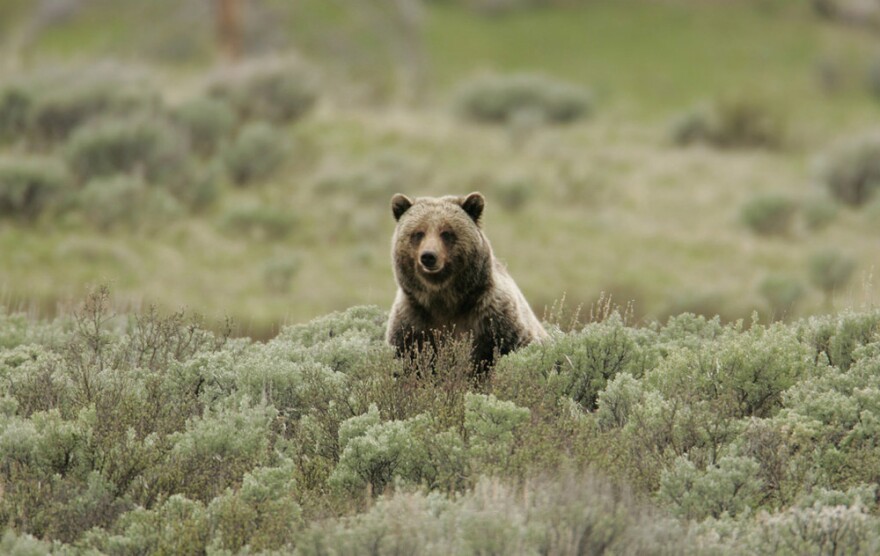Endangered species protections were lifted for grizzly bears in Yellowstone National Park Monday. Many tribes prepared for the delisting last fall by signing a treaty to protect the bears.
But one tribe in the Northwest looks at it differently. ???
Ray Entz is the Director of Wildlife and Terrestrial Resources for northeastern Washington’s Kalispel Tribe. He called delisting the Yellowstone grizzly a victory for the Endangered Species Act. ??
“Getting a species identified as being at risk and recovering it and having it move off of that list. It also frees up resources,” Entz said.??
Those resources, according to Entz, could be used to help recover three other grizzly populations that live on traditional Kalispel land. Those bears are currently listed as threatened under the Endangered Species Act.
The Kalispels traditionally hunted those bears in winter, but haven’t been able to in recent years. They live in three distinct ecosystems: Montana’s North Continental Divide, northeastern Washington's Selkirk and the Cabinet-Yaak, which stretches from Montana into Idaho’s panhandle. ??
Entz said if those populations were ever to recover, the Kalispels would want an opportunity to take part in a cultural practice that’s been lost. ??
“Our tribe in its history did hunt and procure grizzlies in the winter and they would want to have that opportunity in the future as a cultural practice,” Entz said. ??
Hunting opportunity is part of the reason the Kalispel tribe opted not to sign the grizzly treaty last fall—125 other tribes did sign. The goal was to protect the bear on all tribal lands. Among the nine articles is one that prohibits hunting grizzlies on all that territory.
Other Northwest tribes that signed include the Confederated Tribes of the Colville, the Tulalip, Coeur D’Alene, Spokane and Puyallup tribes and others.
When Nisqually Tribal Councilman Willie Frank, III signed the treaty last October, he quoted his father as saying, “As the salmon disappear, so do our tribal cultures and treaty rights.”
Frank went on to say at the signing, “In this case, just substitute the grizzly bear for the salmon, and the meaning and consequences are exactly the same.”
Ray Entz said the Kalispels support much of the content of the treaty. ??
“I think there’s a lot of that is very positive and very pro-education. All those things are really important and we support that,” he said. “But in its totally, it just didn’t work because of some of those kind of restrictive pieces of language”—about hunting. ?
Entz said the Kalispels could have potentially signed on, “had we...had more opportunity to comment on it before it was finalized.”
Leadership from tribes that signed said they did so in part because consultation between the federal government and tribes regarding the delisting of the Yellowstone grizzly was not sufficient.

